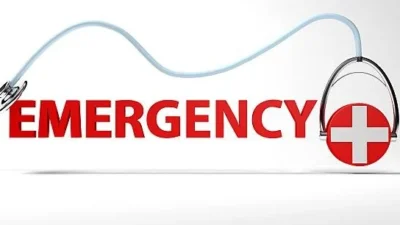Contrary to what others might think, medical mistakes can also happen outside the theatre. From missed diagnoses to nursing home neglect, the consequences can be just as devastating. While they’re not always loud or obvious, they can affect your health, your future, and your peace of mind.
So, what are the lesser-known but all-too-common scenarios where things go wrong in healthcare? What could they mean for you or someone you love? If you’re wondering whether or not you’ll be needing medical negligence lawyers Sydney soon, listen up.
1. Missed or Delayed Diagnoses—The Quiet Oversight
As mentioned earlier, not all negligence shouts at you. Take missed or delayed diagnoses. You walk in with symptoms that feel off. Your chest feels tight, you’re tired all the time, or there’s a strange pain that’s hanging around like a bad smell. The doctor sends you home with reassurance and maybe some paracetamol. But weeks later, you’re back—this time with something much more serious.
Whether it’s a cancer caught too late or a stroke misread as stress, these missteps are frustrating and can change your life. What should’ve been spotted early could become a ticking clock.
2. Medication Errors That Go Beyond the Script
Medication mistakes aren’t rare, and they’re not always about someone getting the wrong pill at the pharmacy. They can happen anywhere along the line: during prescribing, administering, or even aftercare. When they do, the fallout can be huge. Here’s how these slip-ups often happen:
- Wrong dosage – Too much, and it can be toxic. Too little, and it’s useless.
- Incorrect drug – Mix-ups due to similar names, poor handwriting, or digital input errors.
- Allergy oversight – Prescribing something the patient is known to react badly to.
- Dangerous combinations – Not checking whether one drug clashes with another the patient’s already taking.
3. GP Appointments That Fall Short of Standard
Most people see their GP more than any other health professional. It’s the front door to the entire medical system. But what happens when that door barely opens?
If your GP breezes through your symptoms, skips the questions, or rushes you out the door, that’s a problem. Count on a good one to listen, ask the right follow-ups, examine properly, and refer you if they’re unsure. Otherwise, it could be a failure of care, and not something to let slide.
4. Negligence in Aged Care and Nursing Homes
Aged care is supposed to be about safety, dignity, and support. But in too many cases, it becomes a blind spot.
Medical negligence in nursing homes doesn’t always scream for attention. It might show up as a recurring infection no one’s treating, or a fall that was ‘just one of those things.’ Sometimes, it’s as subtle as confusion or weight loss brushed off as part of ‘getting old.’
But the thing is, it’s not always just ageing. It could be untreated dehydration, medication errors, or lack of proper monitoring. When staff are stretched too thin or procedures fall through the cracks, the residents pay the price.
5. Birth Injuries That Could Have Been Prevented
Labour and delivery are moments where everything should be watched like a hawk. And usually, it is. But when negligence creeps in, the consequences can be heartbreaking. Keep an eye out for red flags like:
- Delayed response to foetal distress – When there are signs the baby’s struggling, but no one acts in time
- Improper use of forceps or vacuum – Tools that should help, not harm
- Failure to monitor or escalate – Especially during prolonged or complicated labour
6. Hospital Negligence That Has Nothing to Do with Surgery
Hospital negligence can happen on the ward, in recovery, or even while waiting to be discharged. Think about infections from unsanitised tools, bedsores from lack of movement, or confusing discharge instructions that leave patients unsure what to do once they’re home. It can even be something as simple as no one picking up a chart note about a missed dose. Doesn’t sound like much, but that little oversight can set off a chain reaction.
7. When It’s Not Just One Mistake
What if it’s not one big blunder, but lots of small missteps? This is what’s known as systemic negligence, where gaps in communication, care, and consistency add up.
Maybe your file went missing, or one doctor assumed the other had followed up. Or perhaps you were told to wait and see one too many times. Individually, these things might not raise eyebrows, but altogether, they can cause real harm.
Surgery gets all the attention, but medical negligence hides in plain sight. At the end of the day, it’s not about pointing fingers. It’s about making sure you—and the people you care about—get the kind of care everyone deserves.

Lexy Summer is a talented writer with a deep passion for the art of language and storytelling. With a background in editing and content creation, Lexy has honed her skills in crafting clear, engaging, and grammatically flawless writing.



